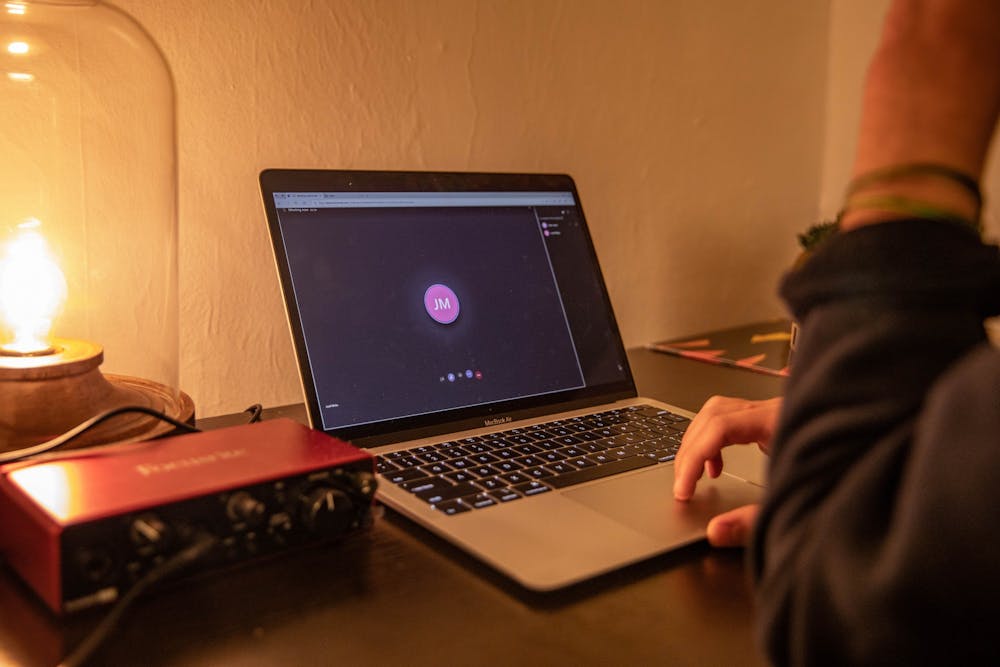Clarification appended.
Ohio University’s Psychology and Social Work Clinic, or PSWC, is up and running — virtually — once again this academic year.
The PSWC, located in 002 Porter Hall, is an outpatient clinic mainly staffed by doctoral student therapists. The clinic offers a variety of services, everything from group therapy to individual treatment for conditions like insomnia, trauma, ADHD and many others.
In the rise of the pandemic, the clinic worked toward developing programming for coping with the effects of the coronavirus, Dr. Julie Suhr, director of clinical training, said. A lot of the treatment focused on COVID-19 addresses COVID-related concerns and how people can learn ways to manage COVID-related stress.
“There’s a great deal of worry — fears of contamination, fears of uncertainty, worries of economic effects, interpersonal connectedness,” Dr. Suhr said. “People are feeling more depressed, loneliness and experiencing lifestyle changes and sleep-related difficulties.”
Though life has changed dramatically since March, people are still continuously adjusting to new routines — or a lack thereof.
“Our routines are off,” Dr. Suhr said. “Maybe we’re not eating or not exercising or not having the social support groups that make us feel better.”
The clinic has adjusted to virtual, remote sessions Dr. Suhr said. The transition was a major change — with layered and complex — but it's gone well.
“The biggest change for psych clinics has been adapting (to) not just ‘how do I make sure we have security and privacy issues covered’ and confidentiality, but ‘how do you interact with people in an intimate setting like therapy,’” Dr. Suhr said.
Doing therapy remotely, “via screen,” as Dr. Suhr puts it, requires a lot more clinical skill and training. The clinic took months to teach its employees with APA and Ohio State APA Board certified training. It took a few months to make sure everybody was up to standard. The clinic also worked extensively with OU tech support.
For Dr. Suhr, all the months of training and technical adaptation has truly paid off. She said that now, the staff looks at all the adjustments and how they’ve potentially improved the clinic’s services overall. It’s now easier to observe students, she said.
Matthew Perlman, a clinical psychology fellow at the PSWC, has been working at the clinic since 2014. His current position is “post-doc,” meaning he’s there to consolidate his training and become a licensed clinical psychologist. Perlman, like Suhr, is glad the clinic is able to offer telehealth services, especially those previously mentioned COVID-related ones.
“The PSWC has partnered with faculty in the Psychology Department to deliver a new, evidence-based group therapy program that's tailored to helping adults and kids cope with COVID-19,” Perlman said in an email. “Sleep has also been a big issue for many people as their schedules have shifted. The PSWC has also launched a group that's all about improving sleep.”
Dr. Suhr added that for some, the clinic’s services are more accessible than ever. However, those without consistent internet access, a problem that plagues Southeast Ohio, find themselves struggling. Services are available through Microsoft Teams and telephone. A simple call to the front desk can also answer any further questions, especially about insurance, Dr. Suhr said.
Therapy has been very beneficial for Kimberlea Czulewicz, a junior studying psychology. Czulewicz does not attend the clinic, but explained therapy has helped her with both personal issues and her future career.
“If you go to therapy for any type of help or advice, it is only beneficial if you want to be there and listen to the therapist,” Czulewicz said in a text message. “I’ve gone through a few different therapists and once I found the one that worked well with me it truly helped me a lot, and I was so glad I made the decision to get help for myself.”
Perlman likes to think of the clinic as “the best kept secret in Athens.” It’s a real asset to Athens, he explained.
“We offer a lot of critical services to support the OU and greater Athens community, from therapy to comprehensive assessment, that are difficult to find anywhere else in the area,” Perlman said in an email. “Beyond our clinical mission, the PSWC is an invaluable source of research knowledge and student training.”
Clarification appended: A previous version of this article made it unclear if Kimberlea Czulewicz attended the clinic or not. The article has been updated to reflect the most accurate information.






